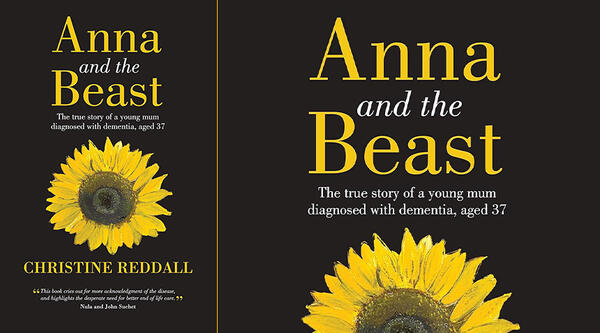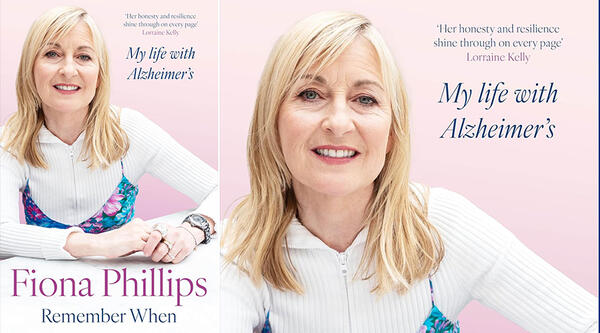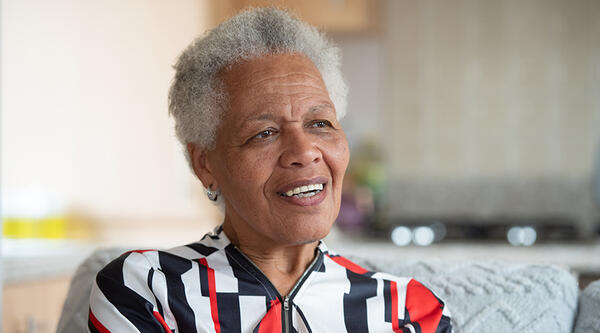Alzheimer's Society's view on younger people with dementia
Find out what we think about position of younger people with dementia in society and their needs.
Dementia is not just an older people's condition. The most up-to-date research shows that, as of 2022, there are over 70,800 people living with early onset dementia.
Younger people with dementia often struggle to access appropriate care and support. In general, dementia services are designed to meet the needs of older people. As a result, dementia services may not be appropriate to the needs of younger people who are more likely to work, have family and financial commitments and rarer forms of dementia.
Younger people with dementia may face discrimination. They may be forced to give up work, excluded from dementia services with a minimum age criterion, forced to travel considerable distances to access appropriate services or left without support.
It is essential that younger people with dementia have access to a range of specialist services that address their particular needs and enable them to live well with dementia. This should include not only health and social care services, but also wider services that promote their wellbeing such as financial advice and support.
2. What the Society calls for:
- Recognition of the needs of younger people with dementia. Dementia strategies and plans in England(2009), Northern Ireland (2011) and Wales (2011) and in National Institute for Health and Care Excellence(NICE) guidance has recognised the specific needs of young people. Alzheimer's Society welcomes this recognition. However, much needs to be done to overcome the chronic shortage of specialist services.
- GPs to have the relevant skills, training and support to recognise the symptoms of dementia in all age groups. Early diagnosis of dementia is essential. Younger people with dementia, however, often wait a long time for a diagnosis. Dementia is often misdiagnosed as depression and some professionals respond negatively to younger people with dementia attempting to obtain a diagnosis (Alzheimer’s Society, 2009). Alzheimer's Society supports the recommendation made by the All Party Parliamentary Group on Dementia that all health and social care staff must be equipped with the skills and knowledge to support all people with dementia, including young people (APPG, 2014).
- Access to specialist services. Younger people with dementia often struggle to access appropriate care and support. In general, dementia services are designed to meet the needs of older people. As a result, dementia services may not be suitable for younger people who are more likely to work, have family and financial commitments and rarer forms of dementia. Alzheimer’s Society calls for all Clinical Commissioning Groups (CCGs) to appoint a Dementia Lead, with specific responsibility for delivering services for all people with dementia and identifying, and assessing the needs of, young people with dementia when planning and commissioning services. Local authorities and CCGs should also commission Dementia Advisers to help young people with dementia access specialist services.
- Personal budgets for younger people with dementia. There are clear benefits to people with dementia and carers using direct payments (Alzheimer's Society, 2011). This is likely to be particularly beneficial to younger people given the lack of appropriate services. However, in 2011, only 23% of people with dementia used a personal budget or direct payment (Alzheimer’s Society, 2011). The Care Act offers new opportunities for people with dementia to access personal budgets. However, barriers to uptake remain, including the attitudes of clinicians, the complexity of the system and funding. For more information, please see our position statement on personalisation.
- Employers to adopt good employment practices that support people with dementia and carers.Following a diagnosis, there should be a discussion of a variety of options to support the person to stay in work. Employers should also provide information, advice and guidance about finishing work to people with dementia and carers who are unable, or no longer wish to, continue working. For more information, please see our position statement on employment and dementia.
References and further information
APPG on Dementia (2014) Building on the National Dementia Strategy: change, progress and priorities
Alzheimer's Society (2014) Dementia UK: Second edition
Alzheimer's Society (2012) Dementia 2012: a national challenge
Alzheimer's Society (2010) Younger people with dementia (information sheet). London.
NICE- SCIE (2006) NICE guideline 42 - Dementia: supporting people with dementia and their carers in health and social care
Royal College of Psychiatrists (2000) Services for younger people with Alzheimer's disease and other dementias (Council Report CR77).
Last updated: September 2014 by Laurence Thraves








